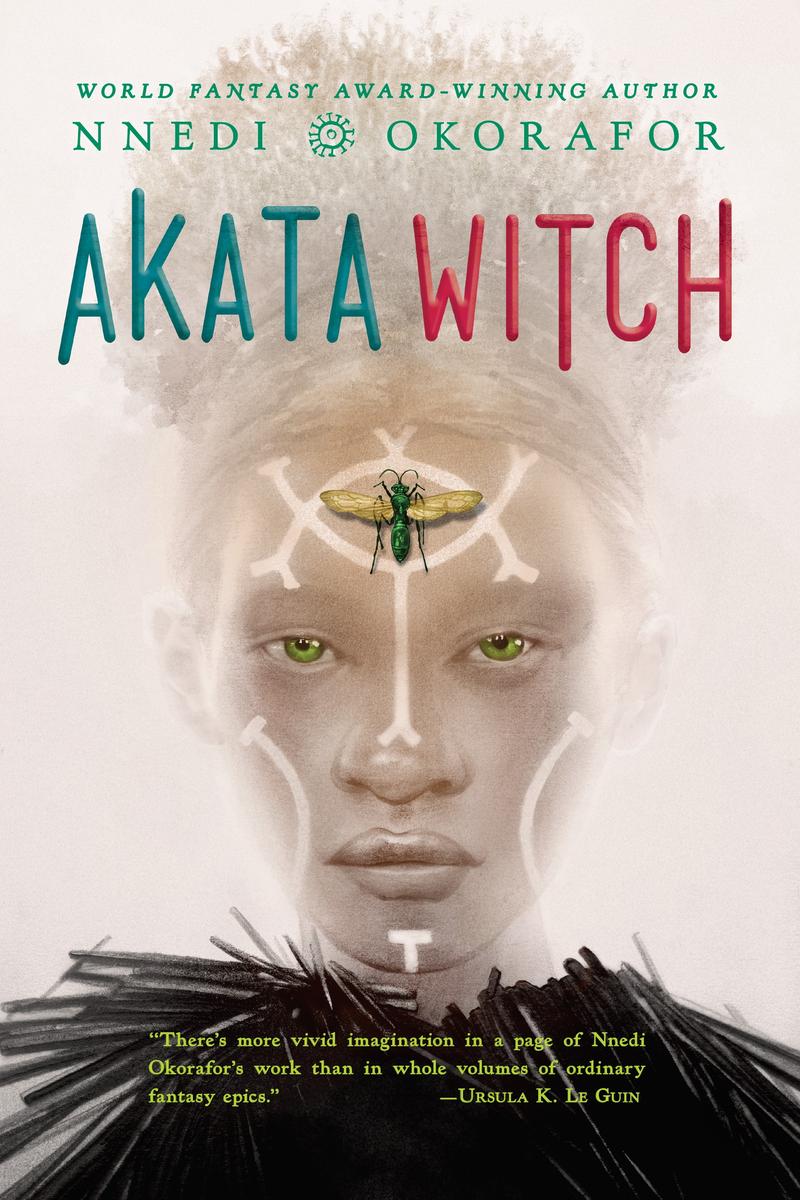My editor, Daphne, recommended that I read Nnedi Okorador’s Akata Witch and Akata Warrior to help with writing my sequel. I had previously read Lagoon and Who Fears Death. After that, I tried reading Akata Witch, but to no avail. I should have taken a break because I was getting fatigued with the writer’s style. Anyway, I made the time to go back to her, so here’s my review.
Sunny Nwazue is an albino girl living in Nigeria but she tries to live a normal life going to school and suchlike. However, there’s something special about her. She has a premonition of the end of the world. Her friends, Chichi and Orlu, notice this and recruit her because they recognise that she has a special gift. And her adventures begin.
Warning: Everything else beyond the cut has spoilers. Click at your own risk.
Chichi and Orlu tell her that she’s a leopard person, and bring her to this magical place called Leopard Knocks, where she learns how to use her magical powers. Along the way, they meet a few mentors, and other like-minded leopard people. She soon realises she has to defeat this evil, Ekwensu, but before that, one of its minions, Black Hat Okotoko, has been kidnapping people.
Through Sunny, we discover her powers and what she has to do to activate her magic powers. Some of it involves cooking like making tainted pepper soup, or using juju knives to slash the air in a specific way to make spells. I especially liked the part where she has to call on her spirit face in order to cross the bridge to Leopard Knocks. After slaying Black Hat in the first book, she goes onto slay Ekwensu, who is the trickster in Nigerian mythology.
What’s not to love about this books? The incorporation of Nigerian mythology, cuisine, and the magic all contribute to the cultural landscape of the novel. Each character is well-written — we have the reserved Orlu who is a born naturalist, Chichi, the gifted but impatient young lady, Sasha, who emigrated from America and whose rebelliousness caused him several run ins with the police back home. (It also doesn’t help that police brutality is real.) And there’s Sunny who is curious but a quick study who immerses herself in the world.
Okorafor also reveals who Sunny is and her ancestry, and how sometimes her relationship with her family members are not always smooth-sailing. Her father’s prejudice against her and her maternal grandmother is something that many families face, but is not often covered in books. Her relationship with her brothers also mirrors that of many siblings, and while there wasn’t much development — just some animosity — in the first book I like how she and her friend, Chi Chi, fight back for her brother (Chukwu) when he is forced to join some sort of mafia-like fraternity organisation.
What I didn’t quite like, and it’s only a minor quibble, was how the author started pairing off the four characters in the book — Sunny with Orlu, and Chichi with Sasha. I didn’t really like how they got together, and it somehow felt a little forced. Then again, romance is also particularly hard to write. I also didn’t like Okorafor creating a love triangle between Chichi, Sasha and Chukwu, although I did appreciate the moments where Chukwu and Sasha bonded over Nas and fought over Chichi in front of her.
I also did think that the climaxes of both books was too short, but I guess I am more used to epic fantasy reads where there are elaborate and detailed scenes.
Overall, I highly recommend the book for its immersive mythology and compelling characters. It certainly has given me a lot of inspiration for my work.
